Want to learn more about ACRC? Contact any member of our core team.
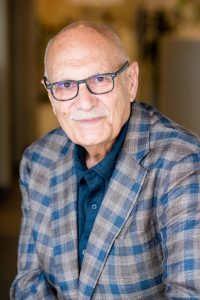
Diran Apelian
Distinguished Professor of Materials Science and Engineering, Chief Strategy Officer – Samueli School of Engineering dapelian@uci.edu
Director of ACRC UCI, B.S., Drexel University, 1968; Sc.D., MIT, 1972
Apelian is a Fellow of TMS, ASM, and APMI; he is a member of the National Academy of Engineering (NAE), National Academy of Inventors (NAI), the European Academy of Sciences, and the Armenian Academy of Sciences. Prior to joining UCI, Apelian was at WPI where he served as Provost and founded the Metal Processing Institute. He has over 700 publications to his credit, and 21 patents; and serves on several technical, corporate and editorial boards. During 2008/2009, he served as President of TMS. He served as Chair of the ASM Educational Foundation Board of Trustees (2016-2018).
Apelian’s research focus is materials processing, specifically in four distinct domains: alloy development; solidification processing; materials recovery, reuse, and recycling; and machine learning/deep learning in materials processing. He is credited with pioneering work in various areas of solidification processing, metal processing, powder metallurgy and digital manufacturing. He is the Founding Editor of the Journal of Sustainable Metallurgy. www.mindyourmetal.com
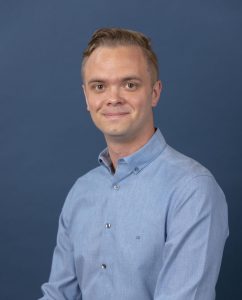
Carl Söderhjelm
Assistant Research Scientist at UCI csoderhjelm@uci.edu
Associate Director of ACRC UCI, M.S., Engineering Nanoscience, Lund University, 2013 PhD., Materials Science & Engineering, WPI
Dr. Söderhjelm received his PhD from Worcester Polytechnic Institute and continued his research for the Advanced Casting Research Center. As a Postdoctoral researcher he worked on particulate reinforcement of aluminum alloys, as well as novel metal additive manufacturing process development. His current research for ACRC is focused on processing semi-solid and liquid metals, as well as incorporation of additive manufacturing into the aluminum die casting industry.
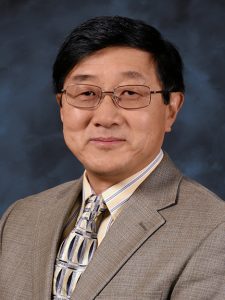
Alan Luo
Donald D. Glower Chair in Engineering, Professor of Materials Science and Engineering and Integrated Systems Engineering luo.445@osu.edu
Director of ACRC OSU, M. Eng. in Materials Science & Engineering, Harbin Institute of Technology, 1987, PhD Engineering Materials, University of Windsor, 1993
Alan A. Luo is Professor of Materials Science and Engineering and Integrated Systems Engineering at The Ohio State University (OSU) in Columbus, OH. He is also Director of ACRC OSU and OSU Lightweight Materials and Manufacturing Research Laboratory.
Luo is a member of the National Academy of Engineering, a Fellow of The Minerals, Metals & Materials Society (TMS), American Society of Metals (ASM) and Society for Automotive Engineers (SAE). Prior to joining OSU in 2013, he was a GM Technical Fellow at General Motors Research and Development Center (Warren, MI) with 20 years of industrial experience. He has 26 patents and more than 400 technical publications on advanced materials and manufacturing. Professor Luo has received many awards including TMS Bruce Chalmers Award, Light Metals Technology Award and Research to Industrial Practice Award, ACRC Merton Flemings Award for Scientific Achievements, General Motors John Campbell Awards and Charles McCuen Awards, as well as several best paper awards and application awards from American Foundry Society (AFS) and North American Die Casting Association (NADCA).
Luo’s research areas include lightweight materials (aluminum, magnesium, titanium and high-entropy alloys, bio-metals, superwood, and nanocomposites), advanced and sustainable manufacturing processes (casting, forming, additive manufacturing, and multi-material manufacturing), and Integrated computational materials engineering (ICME). Read more about Prof. Luo here on the Ohio State University website.
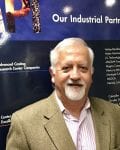
Affiliated Faculty
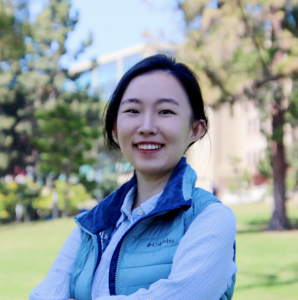
Elizabeth M.Y. Lee
Dr. Elizabeth M.Y. Lee is an Assistant Professor of Materials Science and Engineering, with a courtesy appointment in Chemical and Biomolecular Engineering, at the University of California, Irvine. She received her Ph.D. and M.S. in Chemical Engineering and Chemical Engineering Practice from the Massachusetts Institute of Technology (2019), and her B.S. in Chemical and Biomolecular Engineering and B.A. in Chemistry with Honors from Johns Hopkins University (2012).
Dr. Lee’s research program focuses on understanding the formation, breakdown, and transport of matter within materials and across their interfaces, primarily through theory and computational modeling. Her group develops and applies advanced simulation techniques—including ab initio methods, machine learning, and molecular dynamics—to study reactive processes in condensed matter. Current applications include defect formation in semiconductors, surface reactions using metal catalysts, and nanoscale energy transport in solids. At ACRC, her group is building a computational framework to model thermal transport in newly designed alloys.
Her honors include the NSF CAREER Award, UCI Samueli Faculty Development Chair, DOE ASCR Leadership Computing Challenge Award, NSF Graduate Research Fellowship, AIChE Electronics and Photonic Materials Graduate Student Award, and the UCI Engineering Student Council’s Professor of the Year Award.
Email: elizabeth.lee@uci.edu
Lab website: Lee Computational Engineering of Materials Interfaces (CeMi) Lab
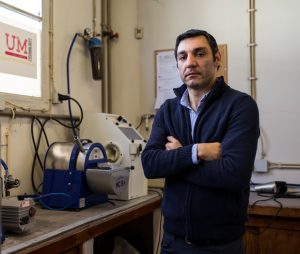
Hélder Puga
Hélder Puga is a Tenured Associate Professor in the Mechanical Engineering Department at the University of Minho, Portugal. His research focuses on casting technologies, including the design and numerical simulation of casting processes for high-performance metallic components and ultrasonic-assisted manufacturing, such as ultrasonic melt treatment and hybrid processes that combine casting, additive manufacturing, and machining.
He founded UMTechnology, a research group dedicated to light alloy casting and the development of ultrasonic tools for processing metallic materials. He has led both national and international research projects and holds several patents, including ultrasonic brazing, squeeze casting, metal powder atomization, and acoustic ladle melt transfer.
Dr. Puga has authored over 110 peer-reviewed scientific articles and received the 2025 Best Paper Award from the American Foundry Society. He was ranked among the top 2% of World Scientists by Elsevier/Stanford in both 2022 and 2023. He is responsible for teaching Metal Casting and Foundry Processes at the University of Minho and the Faculty of Engineering at the University of Porto, and actively supervises academic and industrial R&D initiatives.
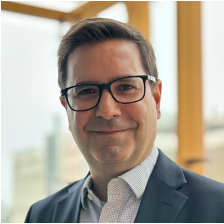
Julián J. Rimoli
Julián Rimoli is the Department Chair and Henry Samueli Faculty Excellence Professor of Mechanical and Aerospace Engineering at the University of California, Irvine. He obtained his Engineering Diploma in Aeronautics from Universidad Nacional de La Plata, Argentina, in 2001. He received his M.Sc. and Ph.D. in Aeronautics from Caltech in 2005 and 2009 respectively. Upon graduation Dr. Rimoli accepted a postdoctoral associate position at the Department of Aeronautics and Astronautics of MIT, where he performed research for over a year and a half. He joined Georgia Tech in 2011, where until 2022 he was the Pratt & Whitney Professor of Aerospace Engineering.
His research interests lie within the broad field of computational mechanics of materials and structures, with special interest in problems involving multiple length and time scales, and in the development of theories and computational techniques for seamlessly bridging them. He is a Fellow of ASME, an Associate Fellow of AIAA, and is the recipient of the NSF CAREER Award, the Ernest E. Sechler Memorial Award in Aeronautics, the James Clerk Maxwell Young Writers Prize, and the Class of 1940 Teaching Effectiveness Award.

Jason M. Walker
Dr. Jason M. Walker is the Director of Materials Innovation at The Ohio State University’s Center for Design and Manufacturing Excellence (CDME). His research interests include the development and application of additive tooling for metal castings, novel gating and risering methods, process simulation, and the instrumentation of molds for in situ data collection. Dr. Walker serves on several AFS Technical Committees in the Additive Manufacturing Division (3D Sand Printing; Hard Tooling; Testing & Specifications) and Molding Division (Investment Casting). He is a past-Chair of the AM Expendable Patterns Committee. He previously served as an assistant professor of Manufacturing Engineering at Youngstown State University where he was the founding faculty advisor and FEF Key Professor of the YSU AFS Student Chapter.

Lorenzo Valdevit
Lorenzo Valdevit is a Professor of Materials Science and Engineering at the University of California, Irvine, and the inaugural director of the Institute for Design and Manufacturing Innovation (IDMI) in the School of Engineering. The overarching goal of IDMI is to promote UCI’s prominence in the area of advanced manufacturing, through a combination of research, education and outreach to industry and the community. Prof. Valdevit received his MS degree (Laurea) in Materials Engineering from the University of Trieste, Italy (in 2000) and his PhD degree in Mechanical and Aerospace Engineering from Princeton University (in 2005). His primary research goal is the modeling, optimal design, additive manufacturing and experimental characterization of architected materials with superior combination of properties.

Daniel R. Mumm
Daniel Mumm is an associate Professor of Materials Science and Engineering at the University of California, Irvine. Prof. Mumm received his B.S. degree in Materials Science and Engineering from the University of Minnesota in 1988, and his Ph.D. degree also in Materials Science and Engineering from Northwestern University in 1994.
He subsequently held post-doctoral or research positions at the Rockwell International Science Center, Harvard University, and Princeton University (Princeton Materials Institute) before joining UC Irvine in 2003. His research efforts aim to elucidate processing-structure-property relationships in structural and functional materials systems utilized in aggressive/extreme environments, and the active thermomechanical and thermochemical mechanisms controlling performance and service lifetime.
Current research activities include: alloy design for extreme environments; mechanisms controlling the performance and failure of advanced coatings used in gas turbine systems; novel additive manufacturing of alloys and coatings (including cold-spray deposition); mechanisms controlling oxidation and hot-corrosion of propulsion and power generation system hot-section materials; synthesis and characterization of energy storage materials; and fundamental studies of interfacial behavior in electrochemical materials systems. His research leverages controlled exposures to simulated service environments, advanced microscopy, spectroscopy and microanalysis approaches, thermo-mechanical testing and characterization and computational assessments of the underpinning thermodynamics and kinetics controlling evolution of materials.

Jennifer Locke
Jenifer Locke received her BA in Physics from Wittenberg University in Springfield, OH. She then worked for a year at AFRL prior to pursuing her Ph.D. in MSE at the University of Virginia. At AFRL, Jen studied glass formability in Al-Ni-RE (rare earth) bulk metallic glasses. At the University of Virginia, Jen performed research on corrosion fatigue of age-hardenable Al alloys. Specifically, she examined the ability of specific microstructures to self-inhibit the deleterious effects of a corrosive environment or the ability of chemical inhibitors to produce passivity to inhibit the deleterious effects of a corrosive environment.
After earning her Ph.D., Jen worked for three years in research and development at Alcoa, where she focused on corrosion and environment-assisted cracking of aerospace and automotive Al alloys. Professor Locke also began work in alloy development and thermo-mechanical processing at Alcoa. She came to The Ohio State University in January 2015 and primarily performs research in corrosion and environment-assisted cracking.

Michael Mills
Professor Mills earned his PhD degree in Materials Science and Engineering at Stanford University in 1985.
After a two-year research associate appointment at the Ecole Polytechnique Federale-Lausanne, Switzerland, and a six-year appointment as Senior Member of Technical Staff at Sandia National Laboratories, Livermore, he joined the Department of Materials Science and Engineering at the Ohio State University in 1994. Mills was promoted to Professor in 2000 and was appointed as the McDougal Professor of Engineering in 2004. Since 2019, he has been serving as Chair of the Department of Materials Science and Engineering at OSU (he was Interim Chair in 2014-2015).
Mills and his group are developing new insights into the mechanical behavior of several important metallurgical systems through a detailed understanding of elementary deformation mechanisms. Recent research has included studies of deformation behavior in commercial titanium and zirconium alloys, strengthening mechanisms in aluminum alloys and novel ferritic steels, dislocation processes and microstructure development in nickel-based superalloys, and deformation mechanisms in high entropy alloys. This understanding forms the foundation for models of behavior that have significant basic science content and are also relevant to industrial applications through the development of Integrated Computational Materials Engineering tools.
He is a Fellow of the American Society for Metals, was inducted as Fellow of TMS in 2015, and has received the Oleg D. Sherby Award from TMS for research in high temperature materials. Mills received the Alexander Von Humboldt Research Fellowship in 1996 and in 2019 he received the Alexander von Humboldt Research Award. In 2021, he was awarded the Heyn Medal of Honor from the DGM (Deutsche Gesellschaft für Materialkunde) for achievements in the field of materials science and engineering, and he holds honorary doctorate from the Ruhr University, Bochum, which was awarded in March 2022.
At-Large Member
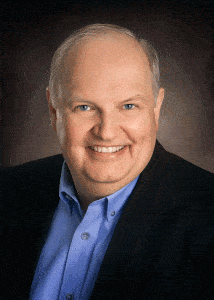
Kevin Anderson
Director-at-Large
Advanced Casting Research Center,
Mercury Marine
W6250 Pioneer Road
Fond du Lac, WI 54935
Dr. Anderson is presently a Mercury Fellow for Mercury Marine in Fond Du Lac, Wisconsin. Dr. Anderson has extensive research and hands – on experience with numerous materials, but most notably aluminum alloys. Dr. Anderson has worked with the vast majority of product forms such as castings, plate, sheet, forgings, and extrusions. Dr. Anderson holds 20 United States patents, and many international patents. The most significant and commercially valuable patents are in the areas of aluminum alloy development in both cast and wrought alloys, aluminum temper development for corrosion resistance, heat treatment of aluminum alloys, restoration process for cast surfaces, and discontinuously reinforced aluminum matrix composites by powder metallurgy. He has taught “Aluminum and It’s Alloys” for ASM since 1999.
